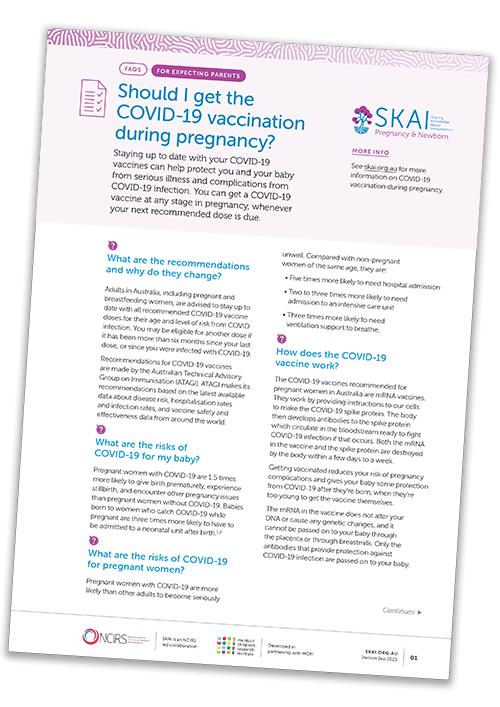Should I get the COVID-19 vaccination during pregnancy?
Key facts
-
COVID-19 infection in pregnancy can cause serious illness and complications for pregnant women and their babies.
-
There is strong evidence showing that COVID-19 vaccines are safe in pregnancy and help prevent serious illness.
-
Women can get a COVID-19 vaccine at any stage in pregnancy, whenever their next recommended dose is due.
-
Information and recommendations about COVID-19 vaccines may continue to change.
On this page
- Overview
- What happens when you catch COVID-19 during pregnancy?
- How can I protect myself and my baby from COVID-19?
- When should I be vaccinated?
- Where do I go to get vaccinated?
- How does the COVID-19 vaccine work?
- How safe is the COVID-19 vaccine?
- Will I have a reaction to the COVID-19 vaccine?
- What else can I do to protect my child from COVID-19?
- How does the COVID-19 vaccine affect breastmilk and breastfeeding?
- Does the COVID-19 vaccine affect future fertility?
